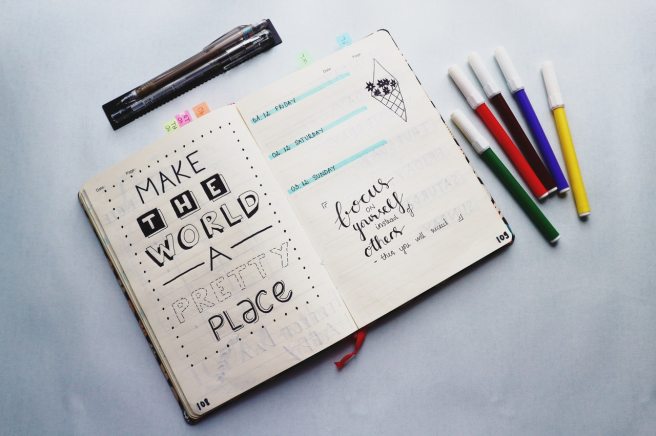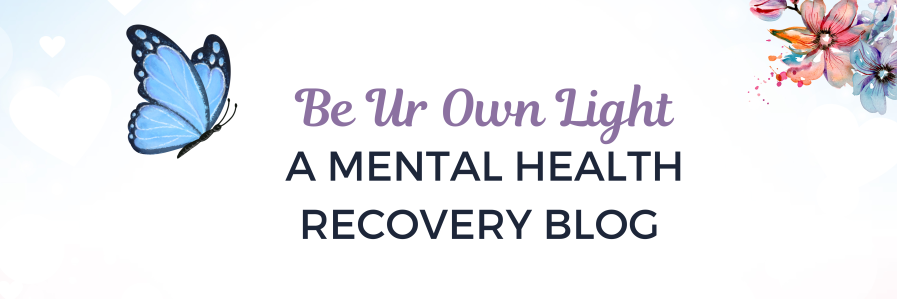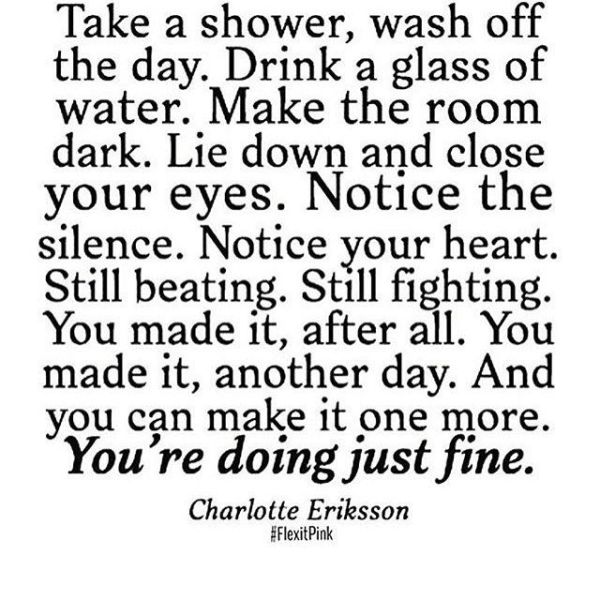
(image: Kate Rose/ internet)
My name is Kate and just over 2 years ago I had my first panic attack. It was without a doubt, the scariest moment in my life and to think I’m at the point where now I can somewhat control my anxiety, feels like a miracle. Anxiety is not something that you can “just get over” which I’ve often heard those who don’t suffer from it, say. (So don’t worry if you’re struggling!) Though I’m a lot more stable now, I still experience mild anxiety every now and again. This post will tell you how I managed to tame my anxiety and help prevent my panic attacks.
#1 Stop Drinking Alcohol
Whether you agree alcohol is the reason for your panic attacks or not, it’s a proven cause to why people suffer from anxiety. Sadly for me, alcohol is the number one cause of why I would experience panic attacks and get myself into such an unstable state. As a result, I will no longer drink even a drop of alcohol and since, I haven’t experienced a panic attack. This is not the same for everyone- some people don’t drink but still experience high panic. It’s not that I don’t want to drink alcohol or that I don’t enjoy myself when I am drinking because I really do. However, the aftermath of it all just isn’t worth it.
In spite of that, it doesn’t mean I haven’t felt anxious since stopping drinking because I have and it’s still an ongoing battle. I’ve quite simply stopped having major panic attacks.
What Happens When I Drink Alcohol?
When I drink alcohol I end up going to bed with a racing mind (how on earth I end up sleeping I have no idea) and wake up in the early hours of the morning with major heart palpitations and breathlessness. It makes me feel like I’m about to die. Due to being tired from waking up early, I always feel extremely frustrated that my body has woken me up. No doubt that makes my anxiety worse and stops me from relaxing and calming down. So, what do I do?
Solution: Talk To Someone
Instead of going on my phone and surfing the internet to try and distract myself, I’m lucky enough to be able to wake my dad and sit and talk to him. I find that it helps me get back to sleep so much quicker than staring at a bright screen which actually makes me feel more awake. After all, it’s unlikely you want to be awake at 4 AM watching YouTube or scrolling through Instagram, instead of sleeping. By closing my eyes, yet having someone there to talk to, I’m able to slowly drift off back to sleep and thankfully not wake up again until the morning. It takes me an hour or two to fall back asleep but compared to trying to cope alone, it’s a lot shorter. Try it – it might just work for you.
Don’t have someone at home to talk to? Perhaps you live alone and I assume for sufferers in an empty home it will feel a million times worse. Maybe it is time to take out your phone but instead of staring at the screen, call someone, even if its a helpline. That way you can lie with your eyes closed making you more likely to fall asleep and still be able to talk to someone for help.
#2 Breathe Using Your Stomach
It may sound slightly strange but after having the ambulance out to me on several occasions, I’ve learn that it’s my breathing that plays a huge part in being able to calm down or not. Breathing quickly and inhaling small amounts of air at a time can cause you to hyperventilate. Stop. Sit back and assess your situation. Think about how you’re breathing:
Are you breathing quickly? Are you breathing in through your nose? When I’m feeling breathless, instead of trying to take lots of little breaths that cause my chest and shoulders to move quickly, I take big, deeper breaths that’ll push my stomach out.
By concentrating on feeling my stomach move, I can focus my attention elsewhere from my racing heart and help me calm down. Use the below ‘calm breathing’ technique from Anxieties for more help:
- Take a long, slow breath in through your nose, first filling your lower lungs, then your upper lungs. (You should feel your stomach push out slightly before your chest starts feeling full of air.)
- Hold your breath to the count of “three.”
- Exhale slowly, while you relax the muscles in your face, jaw, shoulders and stomach.
Remember: Listen to your body and analyse what you’re doing. Are your teeth clenched? How are you sitting? Give your body a little shake to relax yourself and even close your eyes if you wish and practice your breathing.
(image: Kate Rose/ internet)

#3 Thought Journal
I think one of the main things that has helped me to conquer my anxiety was analysing the potential cause and the feelings I had, during the panic attacks. Sometimes it was going to bed with too much on my mind, sometimes eating too late. Even from doing absolutely nothing and other times from being rushed off my feet. It’s hard when there are so many different factors that can trigger panic attacks but trying to figure out what that cause is can help you to overcome your negative feelings.
Write them down. Making a note of the time you had your panic attack, what you were doing before, perhaps the foods you ate that day and so on, will help you to figure out if there is a pattern. Over time I began to learn that the main cause of mine was from alcohol and going to bed when I still had things to do. Ensuring I made time for cleaning my room, making my dinner for work and sorting my outfit for the following day, meant I could go to bed without worrying. I wouldn’t feel rushed and I gave myself peace of mind to improve my sleep which is so important for coping with anxiety.
#4 Do Some Exercise
One of the key factors in helping me beat my anxiety was a lifestyle change that involved getting active and eating healthy. By going to a fitness class or doing a home workout, I was able to relieve all of my built up stress and found trying to get to sleep or relax, a lot easier. I started by going the gym 2-3 days a week and currently go 3-4 times a week. I also realised that since getting a FitBit back in July 2017, it’s helped push past my panic attacks even further, by distracting me from feeling anxious with fun fitness challenges with my friends and family. What’s great with having a FitBit is, even if you don’t have friends or family who have one, there’s a whole community you can get involved with.
Not Interested In Exercise?
If you’re not into doing full-on fitness classes, why not aim to do a certain number of steps a day? My goal is 8,000 and find that whilst working 7AM to 4PM Monday to Friday, this is pretty achievable as long as I go for a stroll at dinner and again in the evenings. Doing this every day is keeping both me and my brain active and it’s these small changes that have helped me to channel my anxious thoughts, elsewhere. Here are some more tips on exercising to beat anxiety.
#5 Don’t Feel Ashamed
No matter how hard it is, you must not feel like a failure. Anxiety can affect anyone and everyone and when you least expect it. Before my panic attacks I was out partying all of the time, drinking copious amounts of alcohol and not having a care in the world. As unfortunate as they were, having panic attacks helped to show me that my body needed to be taken care of. Yet, for the troubles I have gone through, I wish I knew that sooner. I realised that during the time my anxiety was at its worst, I had an extremely negative approach to everything and often found myself using negative words a lot.
Solution: Take a time out to evaluate your attitude. As much as you may think you’re world is coming to an end, I found changing my mindset to try and think of even the worst times in a positive way, made me channel a stronger side to myself. This has been a major contributor to helping me get over my panic attacks. Replace words and phrases like “bad”, “I can’t”, “never” and “not now”, with “good”, “I can”, “always” and “yes”. You never know what good could come from it.
Alternatively, The Calm Clinic suggest something similar to a thoughts journal: a positivity journal. Fill it with positive things that have happened to you that day. Aim for at least 10 things so that no matter how bad the day may seem, you always have 10 great things to reflect back on.
Here’s their example:
Examples of good entries:
- The barista gave me my coffee for free today because I was nice to her.
- My boss complimented me on the project I finished.
- I received a phone call from an old friend just because she wanted to catch up.
Examples of the types of entries you should avoid:
- I woke up.
- My mum didn’t call me which is good because I didn’t want to hear from her.
- I didn’t screw anything up too badly.
Remember: If this seems too much of a chore to do, stop. Put the pen down and try something else instead, like yoga, listening to music or an audio book or reading a book yourself. If you feel pressure to write in the journal, it may make your anxiety worse. Yet by trying different methods of coping with anxiety you can find what works for you.
Why Medication Isn’t Always Right For You
I ended up being consumed by my anxiety and fears and feeling like the only way to get through it was to take medication. The doctors weren’t keen on prescribing me with any tablets at the time and I didn’t really want to take them anyway. Though, after a while I felt it all became too much. Me and my boyfriend went to Holland & Barrett to buy some calming pills.
I don’t want to promote the tablets I took in this post because I only used them once or twice. I think that trying to control my anxiety without medicine was a better solution for me and although was a challenge, made me feel strong and as though I was capable of anything. For others, taking medicine may work best for them and it really is down to the individual.
No matter how you deal with anxiety, just remember not to give up. I felt like my world was collapsing and I was so scared. Though with perseverance and time, I can now say I’m coping well with my anxiety, though the battle is still on.
This article is by Katie Rose, Lifestyle Blogger at ok Kate
ok Kate is a lifestyle blog about my life as a “normal”, young adult and the steps I’m taking to try and change my life from being boring and rather basic, to make the most of the world around me.









